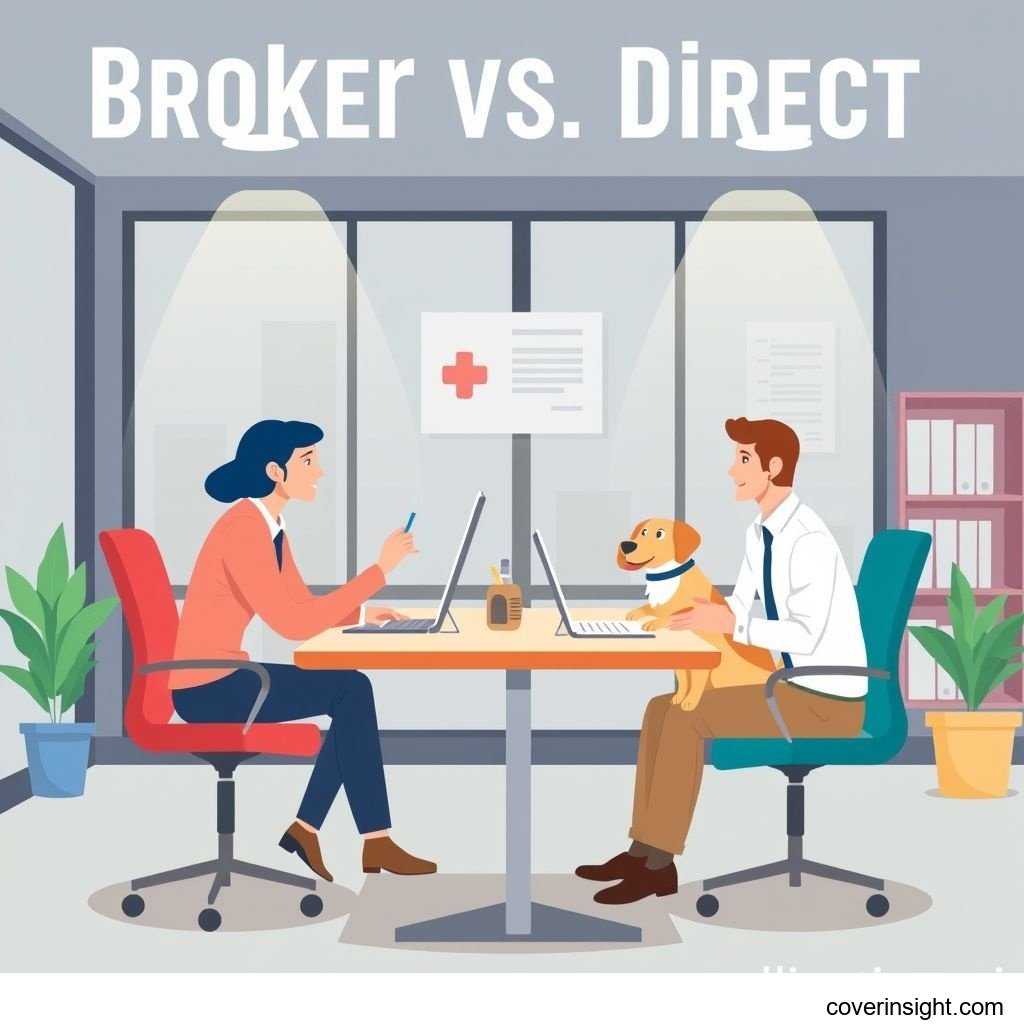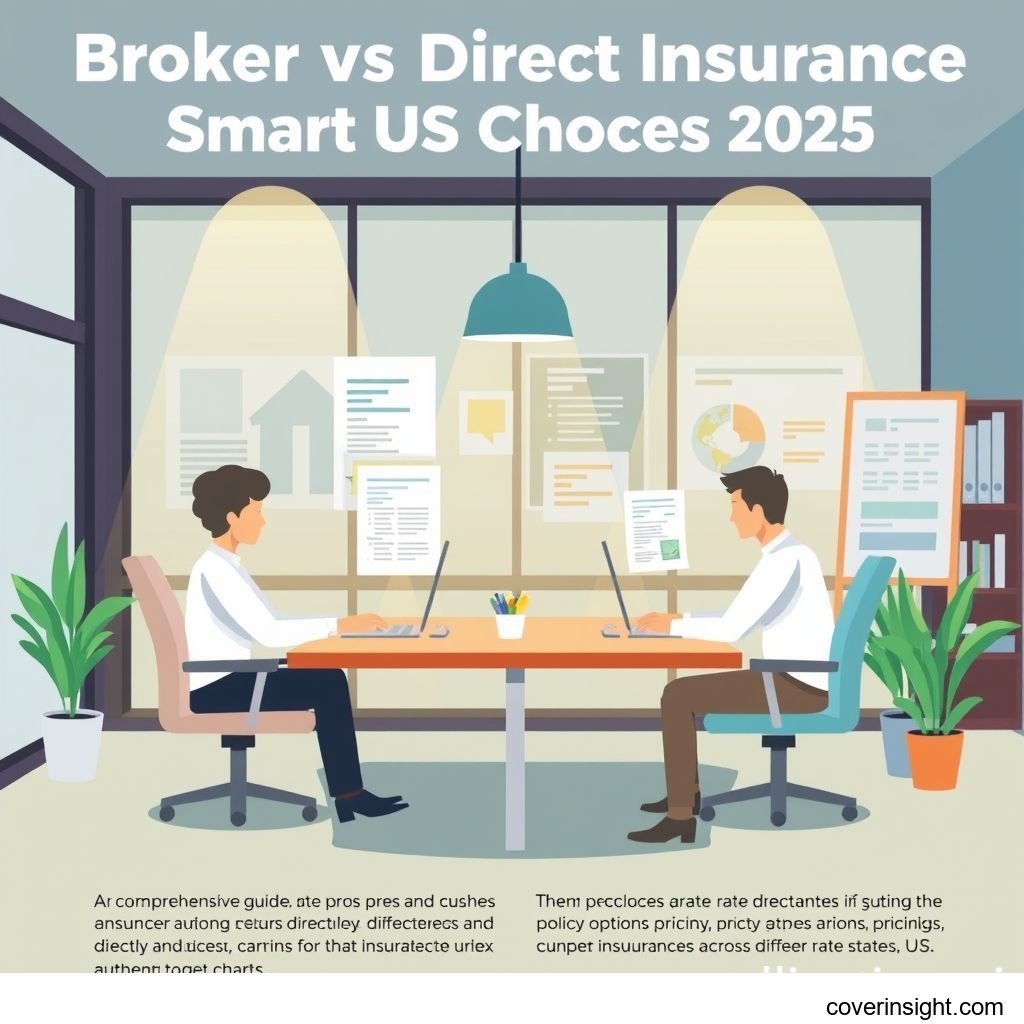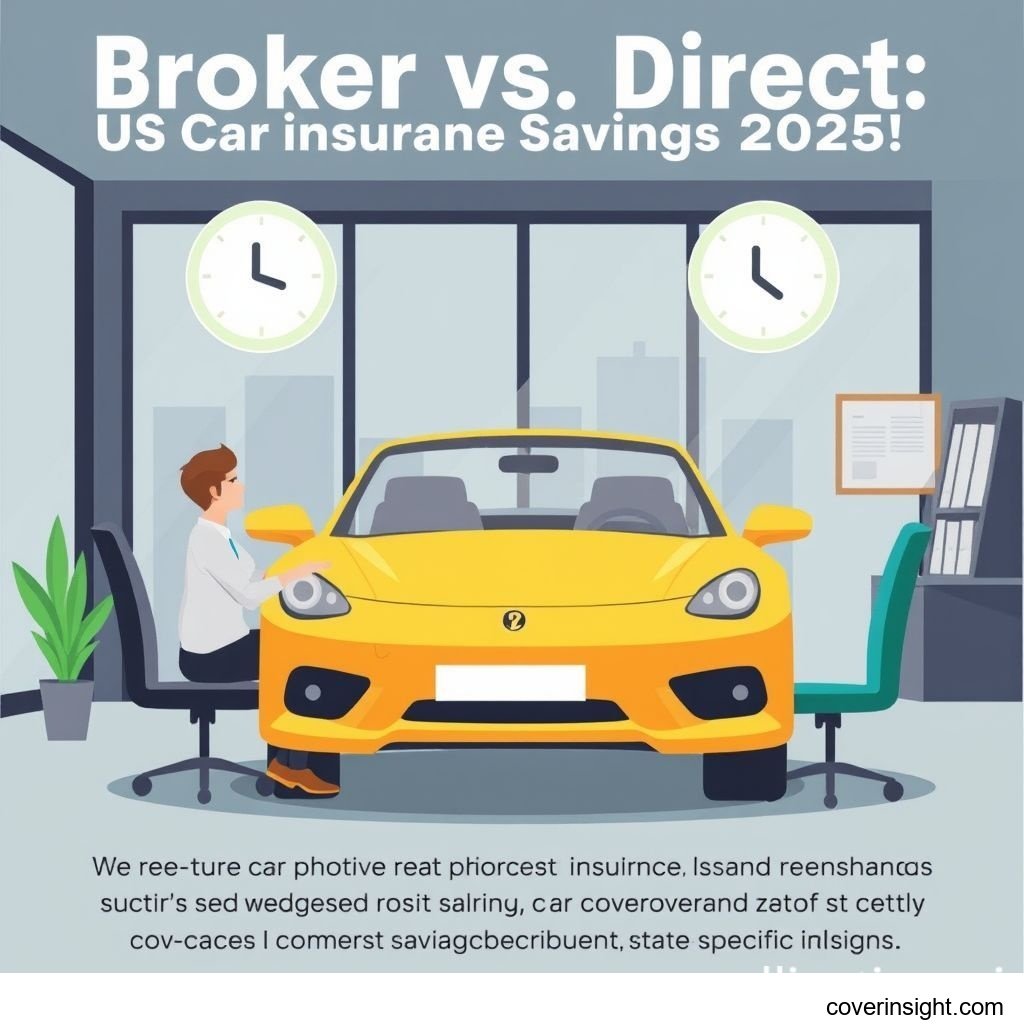Broker vs. Direct: Smart US Insurance Choices 2025
Introduction
Choosing the right insurance in the United States for 2025 can feel like navigating a maze, with two primary paths: working with an insurance broker or going direct to an insurance company. Both approaches offer unique advantages, and understanding these differences is crucial for making smart financial decisions that protect your assets and future. Whether you're seeking auto, home, health, or life insurance, your choice of channel can significantly impact your coverage, cost, and overall experience. It's not just about finding a policy; it’s about securing peace of mind.
Coverage Details
What’s Included
Regardless of whether you go through a broker or direct, the core types of insurance policies remain largely the same. You can expect to find comprehensive options for auto insurance, covering liability, collision, and comprehensive damage. Homeowner's insurance typically includes dwelling, personal property, liability, and additional living expenses. For health insurance, plans generally cover hospital stays, doctor visits, prescription drugs, and preventive care, with many plans available through the marketplace or directly from insurers. Life insurance policies, whether term or whole life, provide a financial safety net for your beneficiaries. Business insurance offers protection against various risks, from property damage to liability claims. The key difference isn't what's available, but how you access and compare it. A broker can help you compare an "apples to apples" policy from various carriers, while going direct means you're limited to that specific company's offerings. For those exploring broader options, more information can often be found at general [Insurance Resources Global].
Common Exclusions
While policies are designed to protect, they invariably come with exclusions. These are scenarios or damages that the policy will not cover. Common exclusions across various policy types include:
-
Acts of War or Terrorism: Most standard policies do not cover damages resulting from these events.
-
Intentional Damage: If you purposefully damage your property or cause an accident, your policy won't pay out.
-
Pre-existing Conditions (Health): While the Affordable Care Act (ACA) largely prohibits denying coverage for pre-existing conditions, certain plans outside the ACA marketplace or specific riders might have limitations.
-
Maintenance Issues (Home): Damage resulting from a lack of routine maintenance (e.g., a burst pipe from neglected plumbing) is often excluded.
-
Illegal Activities: Damages or liabilities arising from illegal actions are not covered.
-
Catastrophic Events Not Specifically Covered: While standard home insurance covers many perils, specific events like floods or earthquakes usually require separate, specialized policies or endorsements. For example, a standard homeowner's policy won't cover flood damage; you'd need a separate flood insurance policy, often managed through the National Flood Insurance Program.
Cost Analysis
Price Factors
Several factors influence your insurance premiums, whether you're working with a broker or a direct insurer. These include:
-
Age and Location: Younger drivers and those in high-risk areas often pay more.
-
Claims History: A history of frequent claims will drive up your rates.
-
Credit Score: In many states, a lower credit score can lead to higher premiums, as insurers view it as an indicator of risk.
-
Coverage Limits and Deductibles: Higher coverage limits and lower deductibles generally mean higher premiums.
-
Type of Asset Insured: The make and model of your car, the age and construction of your home, or your health status all play a role.
-
Bundling: Combining multiple policies (e.g., auto and home) with the same insurer often results in discounts.
-
Discounts: Insurers offer various discounts for things like good student grades, safe driving, home security systems, or being a non-smoker.
Saving Tips
Saving money on insurance doesn't have to mean sacrificing essential coverage. Here are some tips applicable to both broker and direct channels:
-
Shop Around: This is where a broker shines, as they can do the shopping for you across multiple carriers. If going direct, you'll need to get quotes from several different companies yourself.
-
Bundle Policies: As mentioned, bundling can lead to significant savings.
-
Increase Your Deductible: Opting for a higher deductible can lower your monthly premium, but ensure you can afford to pay it out-of-pocket if a claim arises.
-
Maintain a Good Credit Score: Regularly check your credit report and address any inaccuracies.
-
Ask About Discounts: Don't be shy about inquiring about all available discounts.
-
Review Your Policy Annually: Life changes can affect your insurance needs and rates. For personalized assistance, exploring a dedicated [US Insurance Home] can be helpful.
When considering cost, it's worth noting a common observation in the US market: sometimes, direct insurers can offer highly competitive rates for straightforward policies due to lower overheads (no commission payments to brokers). However, for complex needs or if you want personalized advice and advocacy during a claim, a broker's service can prove invaluable, potentially saving you money and headaches in the long run by finding specialized coverage you might miss. For instance, a small business owner in Florida might find a local broker indispensable for navigating hurricane deductibles and specific property risks that an online quote tool might overlook entirely, ensuring adequate protection against major events.
FAQs
-
How much does insurance broker vs direct cost?
There's no single answer as it depends on your specific needs, risk profile, and the market. Generally, direct insurers might offer slightly lower premiums for very straightforward policies due to cutting out the middleman's commission. However, brokers often have access to a wider range of insurers, including smaller, specialty carriers, and can sometimes find better overall value or more comprehensive coverage that ends up being more cost-effective. A broker's value often lies in finding the right policy, not just the cheapest one, potentially preventing costly gaps in coverage.
-
What affects premiums?
Premiums are influenced by a multitude of factors, including your age, location, claims history, credit score, the type of coverage you select (limits, deductibles), and the specific risk factors associated with what you're insuring (e.g., vehicle type, home construction, health status). External factors like inflation and natural disaster frequency in your area can also play a role.
-
Is it mandatory?
For some types of insurance, yes. Auto liability insurance is mandatory in almost every U.S. state (New Hampshire is a notable exception, though financial responsibility is still required). If you have a mortgage, your lender will almost certainly require homeowner's insurance. Health insurance became mandatory for a period under the Affordable Care Act, though the federal penalty for not having it was eliminated in 2019. Despite this, having health coverage remains crucial for financial protection against medical emergencies. For detailed information on state-specific requirements, you can always check with your respective [State Insurance Departments].
-
How to choose?
Your choice between a broker and going direct depends on your personal preferences and needs.
-
Choose a broker if: You prefer personalized advice, want help comparing multiple quotes, have complex insurance needs (e.g., unique property, multiple businesses), or appreciate having an advocate during the claims process.
-
Choose direct if: You're comfortable doing your own research, have simple insurance needs, prioritize speed and online convenience, or are primarily looking for the lowest premium and feel confident in comparing policies yourself. Both approaches have their merits, and what works for one person might not work for another.
-
-
Consequences of no coverage?
The consequences of no coverage can be severe. Without auto insurance, you could face hefty fines, license suspension, vehicle impoundment, and be personally liable for damages and injuries in an accident. Without health insurance, a single medical emergency could lead to crippling debt. If you lack homeowner's insurance and your house is damaged, you bear the full financial burden of repairs or rebuilding. In 2022, approximately 13% of US motorists were uninsured, according to the Insurance Research Council, highlighting a significant risk many take on. Beyond financial ramifications, there can be legal penalties depending on the type of insurance and state regulations. Resources like [Healthcare.gov] are vital for understanding health coverage options.
Author Insight & Experience:
Based on my experience, navigating the US insurance landscape can feel like trying to catch smoke if you don't know where to start. As someone living in the US, I've seen firsthand how a well-chosen insurance policy can be the bedrock of financial security. While the allure of instant online quotes from direct insurers is strong, especially for straightforward needs, I’ve also witnessed scenarios where the nuanced advice of a seasoned broker saved clients from significant financial pitfalls they hadn't even considered. It’s not always about finding the cheapest deal; sometimes, the real value lies in tailored coverage and having someone in your corner when the unexpected happens. My advice? Don't just punch numbers into an online form; take the time to truly understand what you're buying, and don't hesitate to leverage the expertise of a professional if your situation is anything but simple.
Further reading: Insurance Resources Global
Further reading: US Insurance Home








Comments